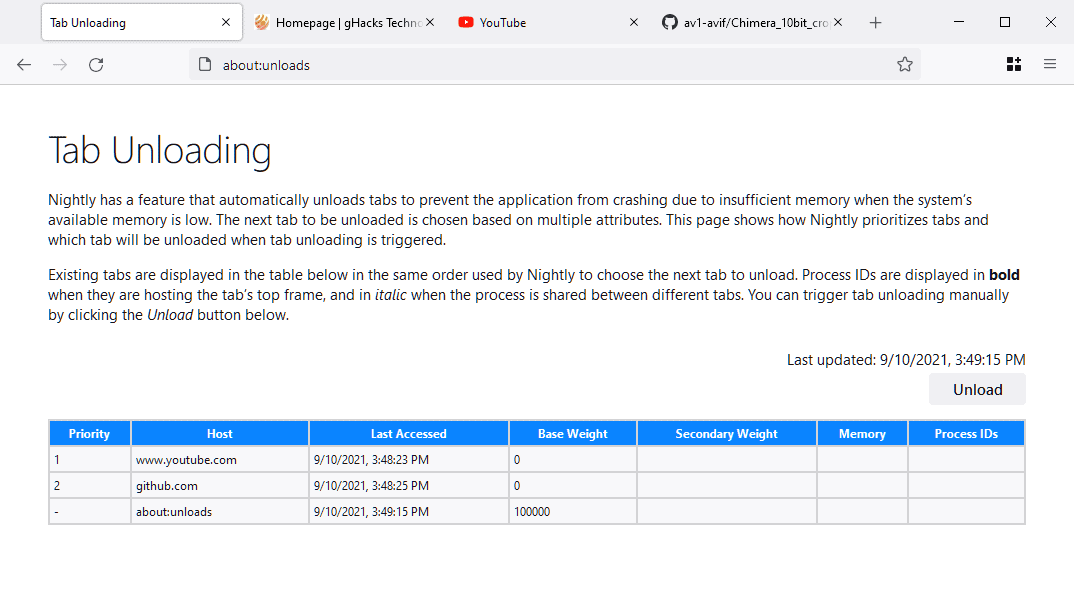Mozilla enabled an automated tab unloading feature to Firefox Nightly on Windows this week, which is designed to improve low memory situations when the browser is used.
Tab unloading work began more than 10 years ago in Firefox, but the feature was never turned on by Mozilla in release versions of the web browser. A new bug was created two years ago and work continued to get the feature ready for release.
Tab unloading is now part of Firefox Nightly on Windows. Firefox Nightly is at version 93 currently, and it seems as if the feature will launch in Firefox 93 for Windows when it is released later this year. Mozilla plans to introduce support for Firefox on Mac OS X and Linux at a later point.
Tab unloading's main purpose is to reduce the number of crashes in Firefox caused by low memory. Out-of-memory crashes happen frequently when memory is low, and the unloading of tabs reduces the number of crashes by freeing memory.
Firefox selects tabs for the unload process based on a number of factors, including "last access time, memory usage, and other attributes" according to Mozilla. Firefox's tab picking algorithm tries to exclude pinned tabs, tabs that play media, and tabs that use WebRTC from being unloaded.

Firefox users may open the new internal page about:unloads to check the order in which tabs will get unloaded if memory reaches certain thresholds. The page features an "unload" button to unload the ta with the highest priority immediately.
Tabs that get unloaded remain visible in the Firefox address bar. Selection of an unloaded tab reloads the content of the tab again.

The Firefox preference browser.tabs.unloadOnLowMemory determines whether the feature is enabled (TRUE) or disabled (FALSE). Firefox users may modify the feature on about:config.
Systems with 8 Gigabytes of RAM or less should get the most out of the new tab unload feature of the browser according to Mozilla.
The purpose of most tab unloading extensions for Firefox, such as Dormancy, Suspend Background Tabs, BarTab, or Unload Tab, is to free up memory. A side-effect of that is that Firefox crashes less often. Firefox's native tab unloading feature frees up memory as well, but its main purpose is to reduce the number of crashes that users experience on low-memory situations.
Google introduced tab discarding functionality in 2015 in the company's Chrome web browser and tab freezing in 2019.
Firefox will soon unload tabs to cope with low memory and reduce crashes



3175x175(CURRENT).thumb.jpg.b05acc060982b36f5891ba728e6d953c.jpg)

Recommended Comments
Join the conversation
You can post now and register later. If you have an account, sign in now to post with your account.
Note: Your post will require moderator approval before it will be visible.